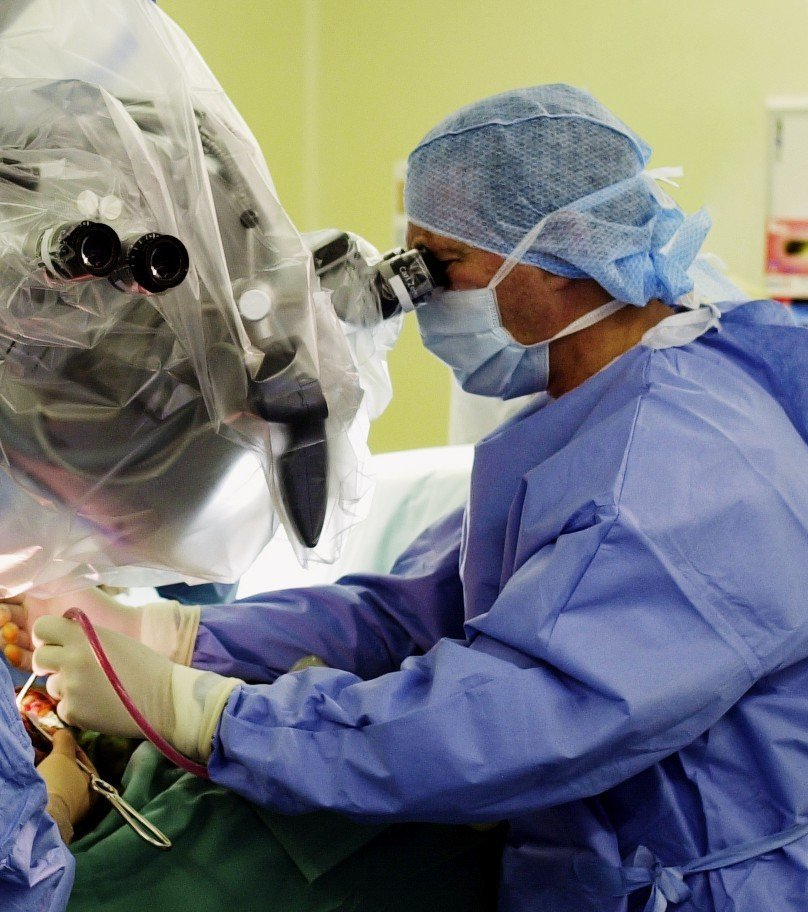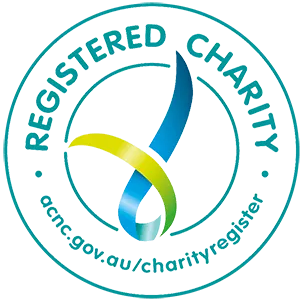NEUROSURGERY
Department of Neurosurgery
Director – Professor Kate Drummond AM
Deputy Director
– Mr John Laidlaw
The Department of Neurosurgery has active laboratory brain research programs, which augment each of the clinical specialised programs undertaken by the department alone and in conjunction with the Department of Neurology. The specialised clinical programs include Brain Tumours, Epilepsy, Intracranial Aneurysms, Neuro-endocrinology, Pituitary Tumours, Neuro-Ophthalmology, Brain Trauma, Cerebrovascular, Spinal Disorders, Pain Surgery and Functional Neurosurgery. We believe that over the next ten years it will be possible for us to use our understanding of brain cancers to develop new therapies.
Our laboratories have made considerable progress in developing potential “novel” targets for biological therapies and we have every expectation that it will be possible to develop effective therapies for brain cancer in the future. However, further funding is vital to enable the work to continue. Our laboratories are in a very special position, in that we are able to collaborate closely with many national and international research institutes, thereby increasing the rate of the progress of science.

BRAIN TUMOUR RESEARCH UNIT
"In over 60% of patients with brain tumours, the disease is incurable, with the average life expectancy being less that one year despite the best available treatments."
The brain tumour research group investigates the basic molecular and cellular events that lead to the development of brain cancer to identify potential novel targets for biological therapies.
The RMH Melbourne Brain Centre research unit's clinical and translational research programs involve: Oncology, Trauma, Neurophysiology of Vision and Cerebrovascular Disease, particularly Subarachnoid Hemorrhage.
These are undertaken in collaboration with various departments of the University of Melbourne, RMH, VCCC, and international groups including Harvard University, The University of Auckland and The Hebrew University in Jerusalem.
The brain tumour group publishes 15-20 papers each year, and delivers educational presentations to numerous bodies and groups.
HIGHLIGHTS
> Largest ongoing quality of life study on brain tumours in the world
> Joining the International Collaboration on Meningiomas (ICOM), an international collaborative effort to improve treatment and quality of life in these tumour patients
> Prospective study of language impairment and recovery following brain tumour surgery
> Intraoperative MRI scanner allowing surgery for our patients to be even safer
> Multiple studies into the biology and treatment of brain tumours, including developing a "liquid biopsy" using MicroRNA to diagnose brain tumours and monitor treatment - recipient of a $200,000 grant from the Cure Brain Cancer Research Foundation
> Dr Jordan Jones, neurosurgery trainee and PhD student, received a $40,000 Brain Foundation grant to study advanced biomarkers in brain cancer
PROF KATE DRUMMOND AM
Professor Kate Drummond AM is Director of Neurosurgery at The Royal Melbourne Hospital and Head of Central Nervous System Tumours for the VCCC.
Prof Drummond's chief research and clinical interests are in the biology and clinical management of brain tumours.
Prof Drummond serves on a number of national cancer and brain tumour groups and boards. She is Neurosurgery Editor of the Journal of Clinical Neuroscience, Deputy Chair and Chief Examiner in Neurosurgery for the Royal Australasian College of Surgeons, and has received the RACS Medal for Services to RACS.
Prof Drummond is Ambassador for 'Brain Tumour Ahoy', a patient advocacy and support network for patients with brain tumours.
A/PROF ANDREW MOROKOFF
Associate Professor Andrew Morokoff is an academic neurosurgeon at The Royal Melbourne Hospital, senior lecturer in the Department of Surgery at the University of Melbourne, and is Head of the RMH Brain Tumour & Epilepsy Laboratory.
A/Prof Morokoff is actively involved in treating brain tumour patients in daily practice and gives frequent educational talks to community groups, such as the Friends of the RMH Neuroscience Foundation, Brain Tumour Alliance and the Rotary Club.
A/Prof Morokoff and his research has featured several times in print and video, including Runner's World Magazine, the Cure Brain Cancer Foundation website, and The Project on Ch 10.
The Royal Melbourne Hospital Neuroscience Foundation
RMH Neuroscience Foundation
PO Box 2116
Royal Melbourne Hospital VIC 3050
In the spirit of reconciliation, the Royal Melbourne Hospital Neuroscience Foundation acknowledges the Kulin nations as the Traditional Custodians of the land on which our services are located. We are committed to improving the health and well-being of Aboriginal and Torres Strait Islander peoples, as with all Australians.
Follow Us
Website by:
Melbourne IT

